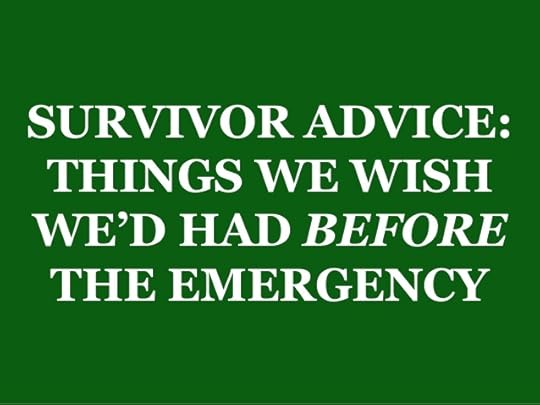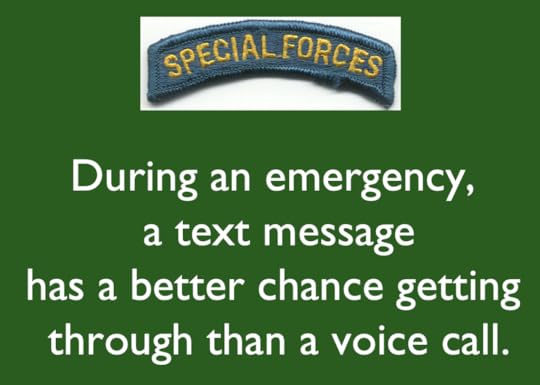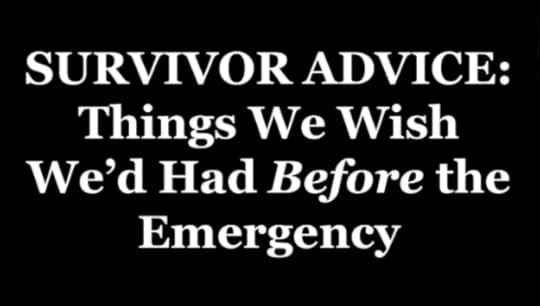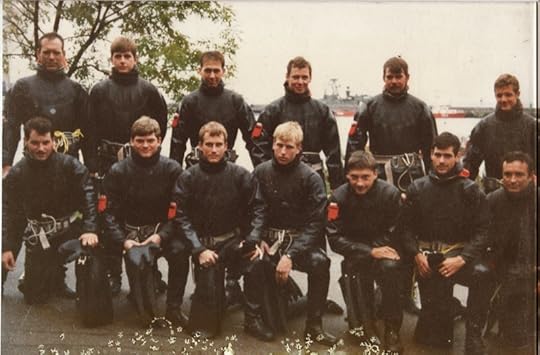Bob Mayer's Blog, page 7
November 8, 2024
Lavender’s Blue is only .99 today. Area 51 is 50% off

Lavender’s Blue the first book in our bestselling Liz Danger series, is only .99 today; Area 51 the first book in the three million copy selling series is 50% off
Area 51: Invasion, which can be read as a standalone, is free. It’s about an alien invasion by a species called the Swarm that manifests itself as creatures of legend—because they’ve been here before. Dragons, Naga, Cthulhu, Kraken and more swarm over the planet. And the fate of humans they encounter is worse than death.
Rocky Start and Very Nice Funerals continue to be our best reader reviewed books ever.
November 6, 2024
Surprise, Kill Vanish: A review

Surprise, Kill, Vanish: The Secret History of CIA Paramilitary Armies, Operators, and Assassins
The author uses recently declassified material and extensive interviews to delve into the history of our country’s covert operations. Having served in Special Operations I knew a lot of this history and some of the people involved.
Nevertheless there were surprises. Behind the lines operations during the Korean conflict were eye-opening. Worse, how those who ran flawed operations were promoted to try the same thing over and over. It was depressing to see how badly many operations were planned and conducted. On the flip side, though, we have to accept that the alternative to cover operations is often all out war; a bargain with the devil.
A must read for anyone who wants to understand the history.
October 25, 2024
Publication Day: Very Nice Funerals

I think Very Nice Funerals is my 90th book published give or take a few. Given the success of the first book in this series, Rocky Start, which still boasts five stars, we’re very excited about it.
Also, discounted for the first time ever, One in Vermillion is only .99 or Kindle Unlimited.
As usual there are several other titles free and discounted on my freebies page.
Given recent events, I think we all see the need to do a better job preparing for possible emergencies. My Green Beret Preparation and Survival Guide is designed for regular people, not preppers. If you follow the tasks inside, step by step, you will be much, much better prepared for possible disasters.
This past week I biked the Shiloh battlefield. This is a great way to experience the battlefield, especially taking old roads that are closed to vehicles. One day I hope to continue my Duty, Honor, Country series which goes from West Point in 1842 through the first night of the battle of Shiloh. The first book in that series, Duty, is always free on all ebook platforms.
Nothing but good times ahead!
October 12, 2024
Very Nice Funerals is on pre-order and publishes in less than 2 weeks!

Yes, it is finally here. We’re doing a short fuse on this pre-order since the book publishes on 25 October on all ebook platforms and in print. Click HERE to find your platform.
I want to remind people that my Preparation and Survival Guide is the best way to prepare for emergencies in an easy, step by step manner. Below is a list of documents you should collect and put in a fire/water proof lock box that you can grab and take with you if you have to evacuate. Also, I recommend scanning all the documents and loading them in a secure place in the cloud.

Nothing but good times ahead!
Bob
October 2, 2024
Welcome To Fall And More Good Deals And The Latest News From Bob Mayer
Things were almost chilly this morning when I went outside to throw a tarp over the load on the trailer I have to haul away. Yes, I have a trailer now. And a barn. And about five acres in west TN. It’s been two months and we’re almost settled in. We have a cottage and a cabin where the furniture is in place and just some arranging to do and then we will be figuring out our plan to have writers come here for a retreat.
On the book front, Very Nice Funerals is done and getting edited. Not sure of the pub date. It might be before the end of this month. We’ve not put a pre-order up yet. Not just because we’re not certain (still want some beta reads) but also I want to see how a book on a short pre-order fuse does. I’ll send a notice out when it’s available.
Rocky Start is the best reader reviewed book either of us have had in over 60 years of publishing experience and over 100 titles. For those of you leery because you think it’s a romance, remember, I wrote half of it. It’s got action. And humor.
I’m playing with another Area 51 book: Area 51: Genesis. It picks up 238 years after the end of Area 51: Earth Abides.
As usual, today’s deal:
FREE:
The Green Beret Area Study Workbook (more applicable than ever to do an Area Study of where you live)
Life’s Little Black Book (full of tidbits of critical advice and not so critical)
Atlantis (the first book in the series)
Burners (which I still think is one of the best ideas I’ve written)
The Gate, one of the Shadow Warrior books is only .99 or Kindle Unlimited. It’s a modern thriller with a lot of history in it, dating back to World War II.
Given recent events, some of you might be interested in how to better prepared yourself. I’ve got slideshows and videos on preparation. I really recommend at least having some sort of grab-n-go bag; and it’s not just for going, it’s also if you’re stuck at home, it can be life-saving. Remember, water is the most important thing! Get two cases of water per person in your household. That will last six days.
Stay safe!
And enjoy the fall weather.
Bob
September 29, 2024
What You Can Learn From The Current Disaster . . . .

First off, what’s happened in western North Caroline and Eastern Tennessee in the mountains and adjacent areas is horrific. This will not be a quick recovery and fix.
Two interstates (I-40 and I-26) are basically blocked. Between bridges out and roadways washed away, it will take a while to get them open. Having spent a lot of time in the area I can tell you that there is very limited access even when roads aren’t out. Right now, only one road south out of Asheville is open from the latest reports. This means hundreds of thousands of people are essentially isolated.
It’s worse once you get into the smaller communities. Some have been almost wiped out. Many are completely isolated.
I’ve done a number of after-action reviews after disasters and what I’m hearing echoes the same things, except at an exponential level. Here are key things we can take away immediately for those of us who want to be prepared:
Be prepared for extended power outages. Most people have not experienced an outage longer than a day or two. Hurricane Sandy taught us some hard lessons. There are many things people don’t consider during wide spread outages. Here is a free slideshow
Some keys:
Water isn’t pumping. And what water you do get, after flooding, will be contaminated. Filter/boil ALL water even from the tap. Invest in a water filter no matter where you live. I have links to everything I mention HERE on my freebies page if you click on the red box labels Free Apps, Web Page and Survival Gear.
Keep at least two cases of bottled water on hand for each person in your household. It seems odd, but after a flood, drinking water is a priority. Estimate 1 gallon a day per person. Two cases will last 6 days.
Gas isn’t pumping. One blogger said he saw people lined up at gas stations. And saw them still there the next day. They’re going to be there a while. Keep a minimum of a tank of gas in reserve cans and use Sta-bil to insure it stays viable. I rotate my gas every month, working through that reserve into my tank and refilling it and the reserve cans.
Cash is king. Without power and the internet forget about credit cards. Cash.
Water is powerful. I commanded a scout swim team in Special Forces. Before we went to attend the Danish Fromankorpset Combat Swim Course, we did pre-training off the coast of Maine. To teach us the power of water, my team sergeant, who was dive-qualified, had us try to swim against the outgoing tide. It was a strange experience to “fin harder” trying to go in one direction while actually being moved in the other. A few inches of water can wipe you off your feet. A foot of water can take your car away. East TN where I used to live is rocky. The water didn’t soak in. It followed gravity with disastrous results. If you live near water understand how it works. If you live on the coast understand tides. I have all that in a free presentation on Flooding.
Cell phone service was already spotty in the mountains. I have a satellite messenger that I’ve used in the Smokies. Many cell towers are out with out power. So people have no information. Invest in a small, cheap emergency radio. Link on my page.
Here is a presentation I did in 2023 and remains true today on Things We Wish We’d Had BEFORE The Emergency
Stay safe out there and BE PREPARED.
September 26, 2024
Survival 14: Your Survival Team. Team Communication. Do’s and Don’t’s

We rely on cell phones and the point has been made that they might be not be reliable.
One thing to remember is that a text message has a greater chance of getting through than voice if the cell phone system is overwhelmed after a wide-spread disaster.
Land-lines have fallen out of favor with many people, but there are times a land-line will work when cells won’t. However, it is also reliant on the system to be intact.
Remember that an emergency alert will be sent through the phone system so leave your phone on when you go to bed. Yes, the pesky spam calls are irritating, but you don’t want to miss an emergency evacuation order.
The Internet is another common mode of information. Of course, it’s reliant on the system being viable. Twitter is an excellent early-warning system with live reporting. However, also be aware that the Internet is often full of bogus material. Research on after-action reports from disasters do report that Facebook has proven to be an effective way of gathering information in neighborhoods.
Two-way radios are an option for an A-Team. Because they are FM, their range is limited. They are also half-duplex, which means you have one channel so you are either transmitting or receiving. Thus the use of the term ‘Over’ when you are done transmitting and release the transmit button. (For picky people, you never say ‘over and out’ because ‘over’ means you are awaiting a response and ‘out’ means you’re done and not expecting a response).
Most decent two-way FM radios have a range of about two-miles but buildings and terrain can limit that as FM waves travel in straight lines.
There are other two way radios that claim much longer ranges using GMRS (General Mobile Radio Service) which is basically what CBs use. The issue with all these radios is battery life.
How To Extend Battery Life In Your Cell Phone:
Download map tiles for whatever GPS App you’re using before you go. I recommend the GAIA App. I always download the map tiles to both my phone and iPad before traveling. This is also useful if you go out of cell range.
Use Airplane Mode as much as possible. Your phone will stop trying to constantly find a network, saving power. Your phone will still be able to operate its GPS in airplane mode as long as you have the maps downloaded.
Avoid exposing to extreme temperatures. The ideal temperature is 72 degrees F. Going below 32 or higher than 95 can cause your phone to shut down. Direct sunlight on a cell phone’s screen on a warm day can cause it to stop. Extreme cold, such as out skiing, can do the same. My iPhone stopped working when I visited Gettysburg Battlefield after a blizzard and was there all by myself, since I had it out taking pictures too long.
Shut down Apps you don’t need. Any App that tracks location uses power even if you’re not using the App. On the iPhone go to Settings>General>Background App Refresh and turn off those you don’t need. Try it now: you’ll be surprised how many are refreshing all the time.
Turn off location services for Apps you’re not using. This can degrade the use of some— for example, your camera will still work but won’t record the location of an image— but it does save power.
Lower screen brightness manually.
Turn your phone off when you don’t need it. This seems obvious but in a serious situation would be key to extending battery life. This is a reason to have a check in schedule in certain situations.
Bring a backup battery with you and cable to plug into. In the Solar Section I discuss small solar chargers and their usefulness.
It is unlikely your team will all be in the same place when a disaster strikes. We are overly reliant on cell phone communication. In a moderate or extreme emergency, it is likely that this service will either be interrupted (lack of power, towers destroyed) or overwhelmed with too many people trying to call at the same time. On Nine-Eleven, many people were frustrated in their attempts to use their cell phones.
Also, if there is an extended power outage, even if service isn’t interrupted, will you be able to recharge your cell phones? Will cell towers still transmit?
When you consider using a GPS on your cell phone, remember that in many cases, the mapping information is being downloaded from your net if you haven’t already downloaded it into the memory. Thus if your service is interrupted, your cell phone GPS can tell you where you are, but it might not display the map. Understand that the GPS on your cell (and many apps) are a way you can be tracked by people who have access to the technology. Most people don’t understand that they are basically carrying a tracking device with them all the time (their cell phone). It’s also a listening device.
There are other options.
GMRS and FRS radios work well for short distances, but their range is limited. Suffice it to say, that any system you use, make sure you test it. A problem with these systems is they require power to work. These usually work line of sight. So while the manufacturer might state they work 30-40 miles, the reality is, in uneven terrain, their effectiveness will be more limited. If purchasing these types of radios, get ones that run on 12 volt DC or rechargeable battery packs. It helps if they can also run on conventional batteries as you should have a supply of those on hand.
At the end of preparation, I cover power. I discuss solar power which can be indispensable in keeping your cell phone and GPS working.
CB radios are also an option, with greater range. Again, power consumption is a problem. Also, no matter what system you use, remember that anyone can be listening in on your frequency or channel. If you don’t live near water that people boat on, a sneaky way to communicate can be to get VDC marine radios. The bottom line, however, is assume any transmission you make is being listened to by others in an extreme emergency. So don’t be broadcasting to a team member “oh my gosh, we have so much food here, we don’t know what to do with it. Hurry up and join us for the feast tonight.” You might end up with too many dinner guests.
I’ve gone many places where there is no cell phone coverage. While going to Hole in the Rock in Grand Staircase-Escalante National Monument, my clutch began to burn out. 120 miles from the nearest civilization. Luckily I managed to sustain in third gear out of there but it made me consider the situation. I now carry a SpotX 2 Way Satellite Messenging GPS Tracking system with me whenever I’m in my Jeep or even day packing.
This is excerpted from: The Green Beret Preparation and Survival Guide
September 24, 2024
The bad advice Voicemail Emergency Meme; And Some Good Tips

This meme makes the rounds on social media every few years for some weird reason; about putting your information in your voicemail if you are in an emergency.
First thing: your voicemail is NOT on your phone. It’s on your carrier’s server. Thus, if you can change it, then you can call for help.
Here’s the good advice:
From the Alpine Rescue Team in Evergreen Colorado:
Call 911 for help. Don’t waste your time calling a friend or changing your voicemail message.If you’re afraid you don’t have enough power for a call or if you have too little signal, text 911 for help. Most 911 centers can receive a text. It takes much less signal to get a text through than a voice call and uses less battery power. Also, your phone automatically retries sending the message if it doesn’t go through immediately.Stay put. Moving makes it harder for authorities to track you down. They’ll know your approximate location from the data received by the cell tower.Maximize your battery life. Turn off everything you don’t need including apps, Wi-Fi and Bluetooth. Also, keep your phone warm. If it’s cold, there’s a bigger drain on the battery.A side not. Most rescue services do not charge for what they do. They don’t want people to hesitate calling for help because they’re worried about paying for it. They’d rather you err on the side of caution.
I learn things the hard way. Some years ago I was out in the wilds of Utah, at Hole in Rock in Grand Escalante Staircase over a hundred miles from the nearest paved road. My clutch began going out. There was no cell phone service. I managed to get in third gear, never able to shift, and drive 120 miles to safety and where I could get it repaired.
So, I bought a Satellite Text Messenger. I keep it in my Jeep all the time. I willingly pay the small monthly fee to keep it active. There are still many places in this country where you’ve can’t get a cell signal. This can be a life saver. In fact, I keep it clipped to the headrest of the passenger seat; in case I get in an accident and am trapped, I can get to it.
I also use Road ID when I go biking or hiking during the day. I set it so that if I become stationery for more than five minutes during the activity, it notifies the people I’ve put on it that I’ve stopped moving. As an extra benefit, one time I wiped out mountain biking and my phone went flying into the brush. I couldn’t find it. Until after five minutes it started the alert and I could locate it by the sound.
I also have a presentation on what to do if you’re lost, but that’s for another day.
Stay safe!
September 20, 2024
Survival 13: Your Survival Team. Preparing The Physically Challenged, Elderly and Pets
Keep on you a list of all medications, allergies, special equipment, along with the names and contact information of doctors, pharmacists and family members.
Keep extra medications on hand.
Keep emergency supplies within reach and if in a wheelchair, have a way to take them with you.
Have a whistle to signal for help.
During an emergency situation, have at least two people who you can count on to check on you. Make sure they know your special needs, how to operate any special equipment, what meds you take and the schedule, and where your emergency supplies are.
If you evacuate your home, leave a message so those two people checking on you know you’ve left and where you are going.
Preparing the Elderly
Keep walking aids close by at all times.
Have extra medications on hand.
Put a security light in every room. These plug in and automatically go on if there is a loss of electricity.
Have a whistle on hand.
Have at least two people who will check on you.
Pets
Yes, they actually sell pet survival kits. You laugh. You won’t if you need to evacuate.
The key to pet survival is what is good for you, is good for them: water, food, and shelter being key.
If you evacuate, do not leave your pets behind. However, if you are going to a public shelter, understand that pets might not be allowed inside. Do you have an alternative for them? Check hotels in the area to which you will evacuate and find which ones will accept pets under those conditions. Check with your local animal shelter and get their advice. At the absolute very least, set them free.
Take pet food, bottled water, medications (tick and heartworm meds), vet records, cat litter/pan, can opener, food dishes, water dishes, and any other supplies as needed. We use a large plastic container for our dog food and store the dishes and all their supplies inside, on top of the food. Keeping everything in one place makes it easy to grab it and go if needed.
Make sure your pet id tags are up to date with your current cell phone number and address. If evacuating, attach the evacuation destination on their collar with paper covered with clear tape.
Make sure you have a current photo of your pet for identification purposes.
Make sure you have a leash and collar to control your pet.
This is excerpted from: The Green Beret Preparation and Survival Guide
September 13, 2024
Survival 12: Your Survival Team. Organizing Your Neighborhood/Work Place

This is particularly key in moderate emergencies. During natural disasters such as hurricane, flood, extreme weather, wild fire, etc. an organized neighborhood can be essential to survival. When I say neighborhood, I also mean your work place. On Nine-Eleven, offices in the World Trade Center that were well organized and had emergency evacuation plans with designated personnel acting in key positions had much higher survival rates. Does your place of business have an emergency plan? Is it practiced?
I touch on things like this in The Green Beret Guide to Seven Great Disasters series of books, showing how people either helped cause a disaster or helped avert one.
One thing to ask yourself is what are the boundaries of a neighborhood? Realistically, you’re looking at around fifteen to twenty households. Larger than that and it can become unwieldy.
Your neighborhood might already have such a team. If so, join it and find out how well organized and prepared they are. If not, then take it on yourself to start one. Usually your larger community will have resources to help you do this. Contact emergency services and the Red Cross and ask.
Do you know who your neighbors are and what they do for a living? What special skills they have? That person you think is a nurse going off to work in her scrubs might actually be someone who works at a kennel washing dogs. Don’t make assumptions.
Inventory the neighborhood:
Chain saws
Winches
Four wheel drive vehicles
CB and other radios, including satellite
Water purifying systems
Where are all the gas meters and propane tanks?
Who needs special help? Focus on the handicapped, the elderly, and children who might be home alone at periods of the day.
Each household should have large placards made up with OKAY on one side and HELP on the other. Use fluorescent colored poster board available at your local supermarket. Have this stored near a front window under a rug. Display as needed.
Determine where the neighborhood gathering site will be; in essence the neighborhood IRP. People should go there before trying to run around and rescue others. Organization saves time and lives.
Have a contact list tree of who alerts who. In the military we always had alert systems. This is a way of communicating so each person knows who they are responsible for contacting. There are events such as wildfires where this is life-saving.
This is excerpted from: The Green Beret Preparation and Survival Guide



